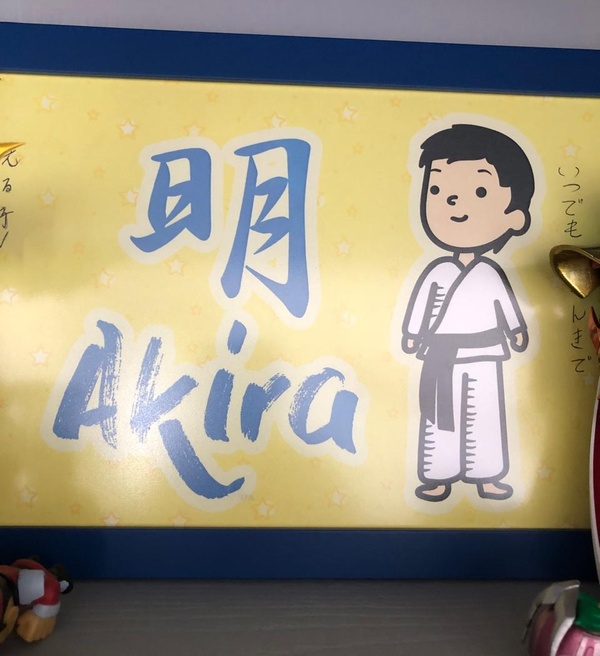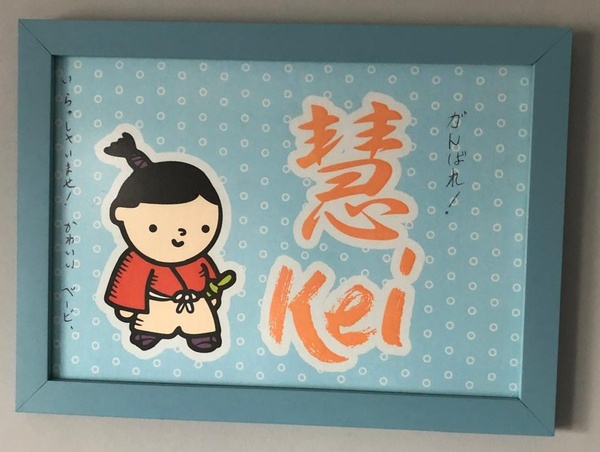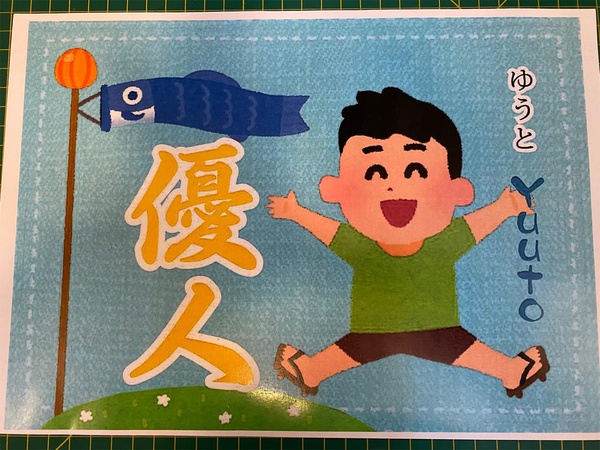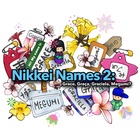When I was born, my father registered me as Augustinha Kazuyo Kadowaki. I had a hard time finding out the real meaning of this surname. I only know that it is linked to the sumotori ancestor who lived in Tottori-ken, Japan. By naming me Augustinha, he had paid homage to his Portuguese neighbors and friends. The name was actually appropriate because I am small. Even though I live in São Paulo, where the vast majority of people are literate, they write my name wrong. Sometimes I am Augusta, Agostinha, and sometimes they even change it to Cidinha, Terezinha, in Portuguese. I even have to stand up at doctor’s appointments when they say: Maria Augusta! How absurd! It’s funny when you think that when you hear the name you will find a Portuguese woman, but a Japanese woman appears! I even smile, it seems to have a nice impact! That’s why now, after having two books published, I put on the cover: Gu (so there is no mistake), and since I am married, I am Gu Kodama. If I started thinking about bullying, I would go crazy.
In this metropolis, there are people who believe that simply calling me Japanese is bullying. However, I feel happy to have roots in this honorable and respected archipelago. People call it yellow skin, but it doesn’t bother me. On the contrary, it is a very beautiful tone and an appreciated color of health and life!
We are who we are, and at that moment I think, they say we are intelligent, versatile, beautiful and elegant. I remember a time during my Fuvest prep course, someone wrote a note that said: While you are having fun, there is a Japanese studying! It was a way of terrorizing our young people! How generous God was with us, besides being Japanese, we are nippaku, nihongins, nikkeis... We are not weak! We are people who love each other!
I recently went to a party at a kenjinkai in Tottori Prefecture, and when I arrived after greetings, they asked me, “What does your name mean?” They wanted to know about my surname, which is now Kodama. I never thought it would matter, but they take it seriously, especially most Japanese people.
Today I know that the ideogram really differentiates between the same surname; I must say that there are several ideograms (kanjis) to write the same name. Searching among my relatives, they clarified this for me:
Ko = newborn babe, child, young of animals (with 7 brush strokes)
Queen = jewel, ball
With identical ideogram, it can be called Otama, Kotama and Kodama (my family).
However, they know me as Gu Kodama and the Kodama prefer the translation that sounds better, now I say it means new jewel! But among the Japanese descendants they say, and the Kodama san is the most popular in everyday life. Hence the value of its roots prevails.
It is also interesting to remember that married Japanese women do not mention their maiden surname; but families with daughters and no sons ask to marry a man who has brothers so that the groom can take on the bride’s surname and consequently the family name does not become extinct.
Nowadays in Brazil, babies have both parents’ surnames, but in Japan, the mother’s surname is forgotten. Japanese machismo is very strong, and that’s why when my youngest daughter got married she told me that she wasn’t thinking about changing her name, but I thought it would make her life easier if I included her surname, so she did, and her father-in-law was happy! In Brazilian bureaucratic terms, you have to change your name on all official documents, and for your passport, you have to prove that you changed your name and show them your birth certificate (father’s surname) and marriage certificate (husband’s surname), even if your passport to be renewed already had your married name!
The importance of a name is a source of pride for its bearer, so I believe that all Japanese people are literate. When a Japanese child is born and the name is chosen, it is not because of its sound, but because of the value that its spelling holds, so it can be said that the name is auspicious or of some importance. Japanese pride begins there, however, I came to understand after the birth of my daughters that they need to have a name that represents their ancestors, and the firstborn is called Yuri, because it comes from the purity of the lily, and the youngest is Marie, who reminds me of the love of Mary, the Virgin Mother, although many people Frenchify her name. Wow, that’s complicated!
The important thing is that anyone can pronounce their names. My mother’s name was Asae, some people pronounced it Azae, so she named herself Ana. She was a very practical woman. You can even say Ana-san in Japanese!
There are many names like ours, however, each person is unique!
We never expected my daughters to have a grandchild. We really wanted one, but we knew it would have to happen at the right time in the couple’s lives. My husband and I had lost a stillborn child and we had many scars from that moment. When we had Yuri, we celebrated a lot and Marie’s arrival was also very much desired. It was not an “oversight.” We really wanted these children in our lives.
After understanding the value of a human being’s name, choosing a person’s name became a very careful act and I could no longer tolerate giving someone a “random” name, especially when it came to a long-awaited and loved child.
My daughter Yuri married a non-Japanese man from Bahia (who was born there because of her parents’ travels); he was the grandson of Brazilians and Italians. And my grandson Akira was born in São Paulo. His father understands, writes and speaks Japanese better than many Nisei. When he was introduced to our Japanese relatives, many made comments without realizing that he understood everything. Thank goodness they only spoke well of him! Time passed and they had a son: my grandson Akira! His parents chose Akira’s name and spelling, and the ideogram could not have been better.
The meaning of the name Akira is to be bright, and the letters that form his name represent the Sun on the left and the Moon on the right! I was happy that his father took into account his maternal grandparents’ origins, so we were flattered and grateful! The child grew up and I taught him a little of our traditions and habits, both in terms of meals and customs, and he was soon learning a little of the Japanese language and judo.
That’s when I thought about giving him a picture with the ideogram of his name and I looked for a Japanese printing company to give him a gift. The professionals gave me suggestions and I decided to choose the figure of a judoka who looked like him. Akira was very happy.
After some time, my daughter Marie told me about her pregnancy. I immediately thought of another painting. This time the name was Kei. My son-in-law Renato asked me to find the best ideogram and I went to consult a sensei from our kenjinkai. She suggested an old classic spelling whose meaning was powerful and the parents approved.
I then had a new painting made, but the image I wanted was still uncertain because he was yet to come. After many choices, we opted for a little samurai because we saw the “look” of the baby in the ultrasound.
And I would like to invite everyone to perpetuate this beautiful tradition that is unique to our descendants and in homage to our ancestors! After all, it is only with our culture that we define ourselves as Japanese!
Later, Yuuto was born, a strong and handsome baby, my sister’s grandson. Her son-in-law is of Portuguese descent, and since they chose the name whose Japanese meaning is gentle, I decided to give the family the same gift. Now they will never forget the ideogram they chose and its meaning.
If we do not carry on our legacy, who will? Will the Japanese pride that the kamikazes left us, the love for peace, simply fade away? And the story of will, perseverance, and debt of gratitude so Japanese (ON); in the same way that gives such appropriate meaning to the African BANZO or Brazilian SAUDADE!
Insisting and persisting in your family’s legacy is preserving the pride of BEING! With all this, I believe that in the beginning we have to love ourselves and respect our ancestors, then we will be able to respect each other as equals, pieces that fit together so that the world can be harmonious and we can all live in PEACE!
© 2024 Augustinha Kazuyo Kodama
Nima-kai Favorites
Each article submitted to this Nikkei Chronicles special series was eligible for selection as the community favorite. Thank you to everyone who voted!













